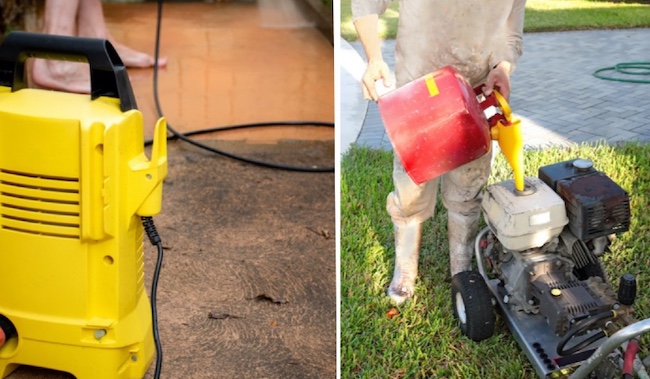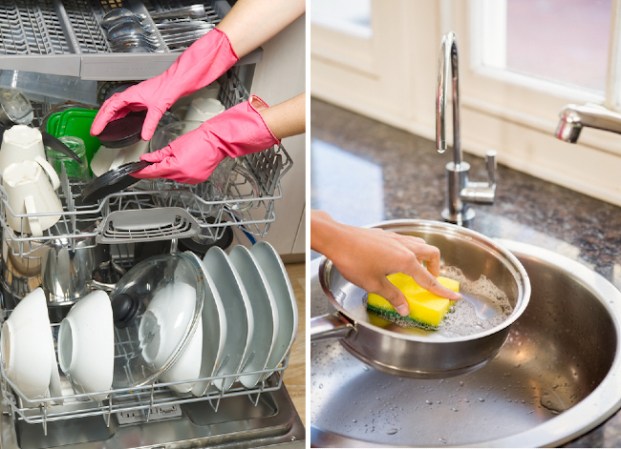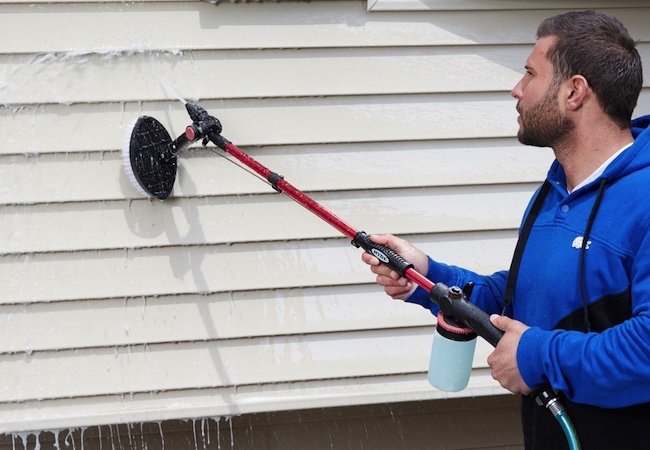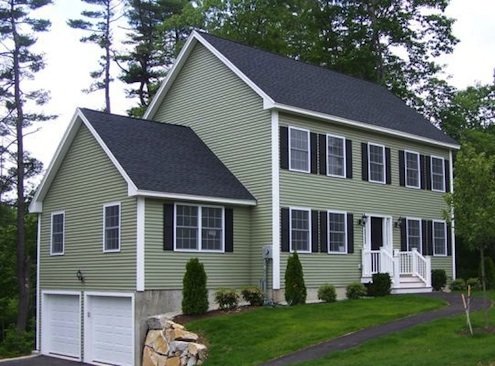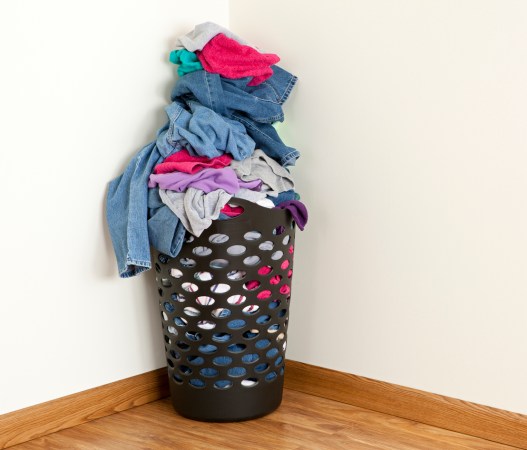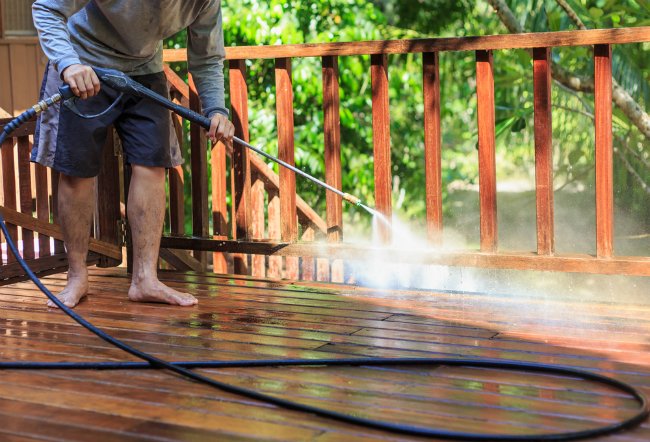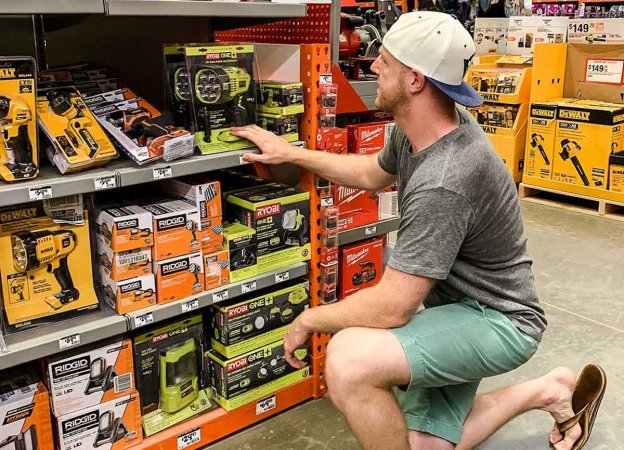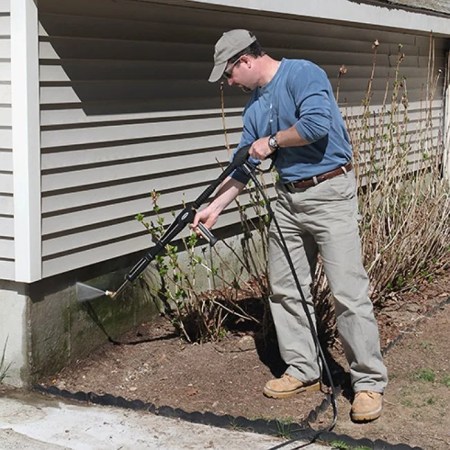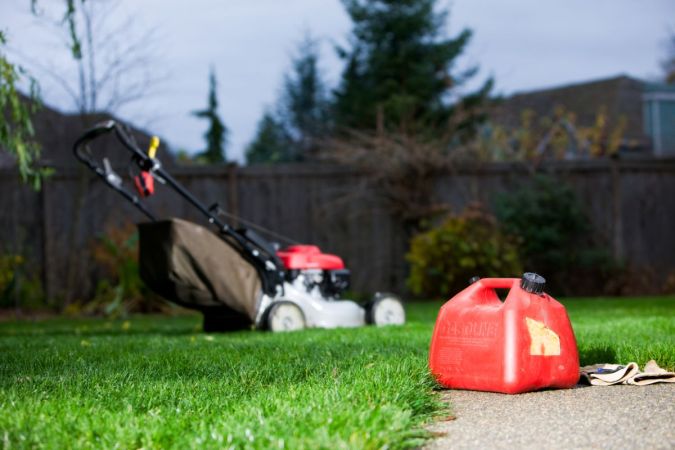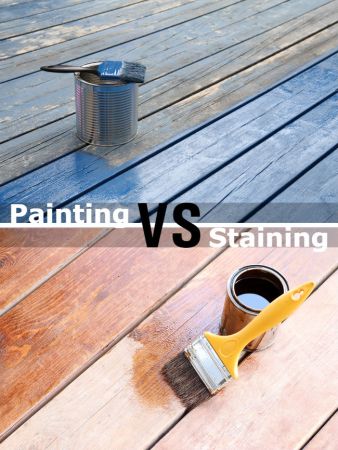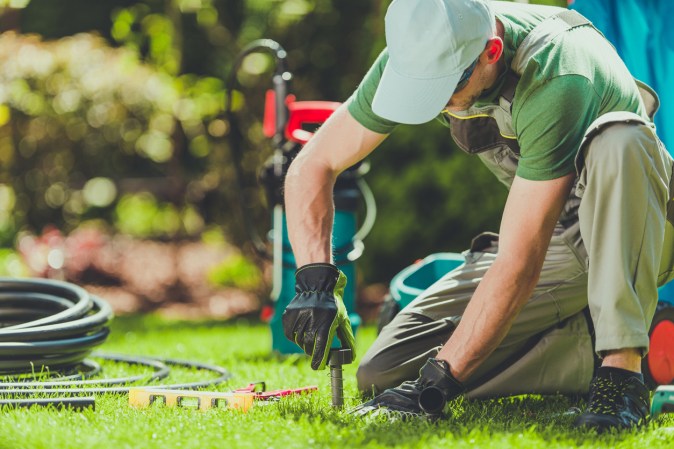We may earn revenue from the products available on this page and participate in affiliate programs. Learn More ›
A pressure washer is an indispensable tool for all kinds of cleaning tasks, both DIY and professional. Light-duty models are great for cleaning decks, siding, or vehicles. Heavy-duty models can scour stains from garage floors and driveways, and they can remove old paint from walls.
The question many people ask is whether an electric or gas pressure washer will be the best tool for their needs. With a wide range of models available, offering different features and performance, the answer isn’t always straightforward.
Keep reading for a breakdown of the pros and cons between a gas vs. electric pressure washer. These details can help pressure washer shoppers make the right decision for their needs.
Gas pressure washers are more powerful than electric pressure washers.
Pressure washers have either an electric or gas motor, which powers a pump. While specifications for the motor are provided, the main performance indicator is the psi (pounds per square inch) which is the water pressure that the pump generates.
The flow rate, given in GPM (gallons per minute) is also important. High pressure with low flow results in only a fine jet, whereas if both pressure and flow are high the machine can give powerful cleaning over a wider area. Cleaning units (CU) is sometimes used, which is a multiplication of psi and GPM. The numbers can sound impressive, but it’s not a particularly good indicator of actual performance.
Most household electric pressure washers run at between 1,500 and 3,000 psi with 1.5 to 2.5 GPM. Gas pressure washers are seldom under 2,500 psi and models that exceed 4,000 psi are widely available. GPM runs anywhere from 2.5 to 4.0. Gas pressure washers can be fitted with specific scrubbers for concrete and tarmac, further underlining their power advantage.
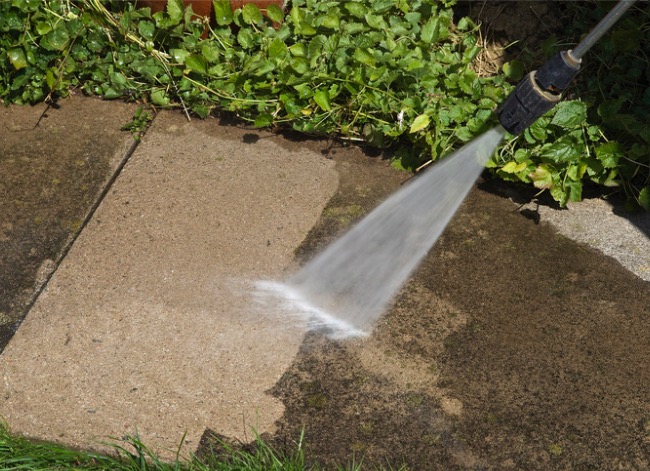
Higher PSI of gas models requires more user skill and safety precautions.
Safety should always be a consideration. While pressure washers are not inherently dangerous, a high pressure stream of water can cause injury. Even a small pressure washer should never be pointed at people or pets. Also bear in mind that motors get hot, and gas pressure water exhausts could cause burns.
The combination of high psi and GPM provided by a gas power washer makes them more difficult to control than electric models. To give some kind of comparison, a fire hose runs somewhere between 50 and 200 psi, way below pressure washer performance. A fire hose is effective (and hard to control) because it delivers a huge volume of water: up to 50 GPM.
The surface being washed also needs to be considered. If a gas pressure washer is powerful enough to lift old paint, it’s not a good idea to use that pressure on more delicate surfaces like vehicle paintwork. For example, 1,500 psi and a GPM of around 1.5 is more than enough for cleaning cars.
Related: How To: Pressure Wash a House
Electric pressure washers require less maintenance.
Electric pressure washers are popular because of their ease of use and low maintenance. They are not entirely maintenance free. They require lubrication for the pump, and general cleaning so that cooling filters don’t get blocked, but they remain easy to live with.
A gas powered pressure washer uses a motor that, like any other engine, requires regular maintenance. The correct oil level is important to cool both motor and pump. In addition there are both oil and gasoline filters that will require annual changing. The spark plug may need to be replaced as well. None of these things is particularly difficult, but following the manufacturer’s maintenance routine is vital for a long service life.
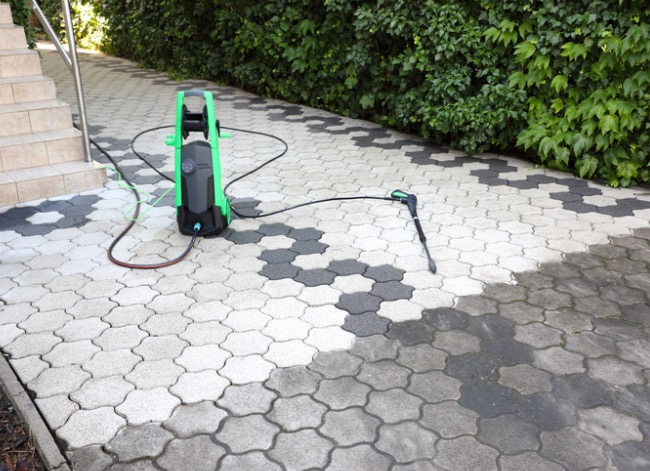
Gas pressure washers are louder and create more emissions than electric counterparts.
Usually an electric power washer runs at about 80 decibels (dB), the same level as many household vacuum cleaners. Even the best gas pressure washers generate more noise, and can hit more than 100 dB. The Occupational Health and Safety Administration (OHSA) recommends hearing protection when continuous noise levels exceed 85 dB. While not obligatory for DIY use, it is advisable.
There is also the question of emissions. Gas pressure washers burn fossil fuels, and that is an important consideration for many. Both CARB (California Air Resources Board) and the EPA (Environmental Protection Administration) set increasingly stringent standards. However, while almost all modern equipment complies with the standards, some older models that don’t comply may still be available. Many of these older models are illegal in a number of states.
Electric pressure washers are easier to start and can be used in enclosed spaces.
Starting an electric pressure washer is as simple as plugging in and pulling a trigger. They will work anywhere there is a convenient power outlet. An extension cord can be used to increase their range, though a 100-foot-long cord is the maximum recommended for these.
Modern gas pressure washers aren’t quite as easy to start, but are relatively trouble free. Some high-end models have electric starting but most have a pull cord like a mower. With no cable to worry about, gas pressure washers can go anywhere. This makes them the optimum choice for cleaning large areas.
However, all gas motors produce carbon monoxide, which is invisible and toxic. In the open, it dissipates quickly. In enclosed spaces toxic air can become concentrated, causing drowsiness and dizziness. In extreme cases it can prove fatal.
So gas pressure washers should never be used indoors — and that includes garages or barns, even with doors open. Electric models produce no emissions, so they are safe to use in these locations.
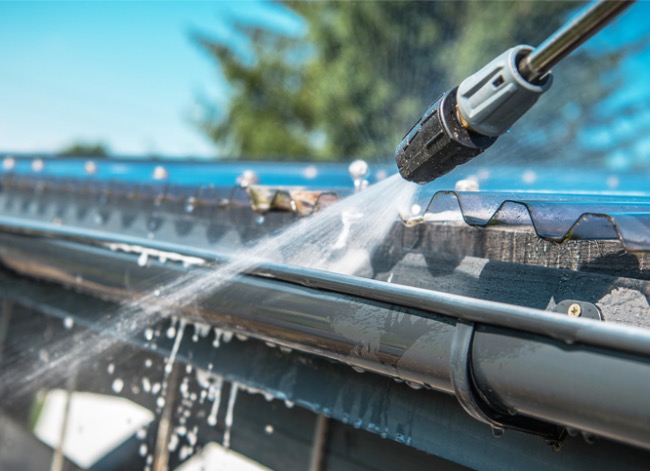
Gas pressure washers tend to cost more than electric pressure washers.
There is a vast choice of both electric and gas pressure washers, and cost varies considerably. In general even the best electric power washers are considerably cheaper than gas models.
There are occasional exceptions. Electric models from premium brands may be more expensive than budget gas models. However, this is almost certainly at the expense of features, and perhaps reliability. While bargains are often attractive, choosing a cheap pressure washer can lead to disappointment. With a little time spent on research, it should be possible to find two or three machines that meet your criteria so costs can then be compared to find the best deal.
Related: 9 Things You Should Never Clean with a Pressure Washer

